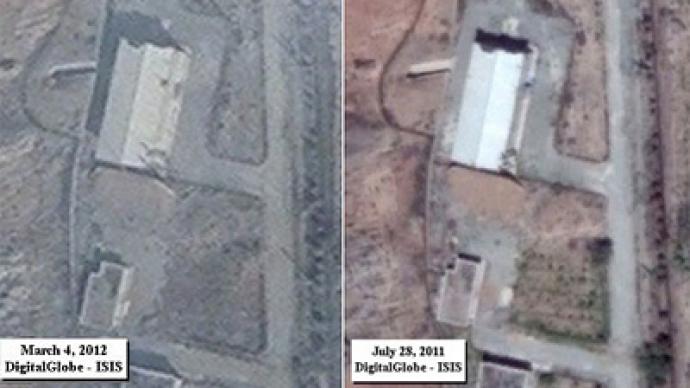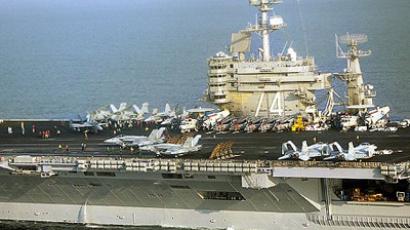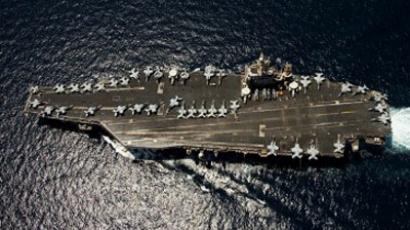New suspicions: Did Iran organize a clean-up at suspected nuclear site?

Freshly released satellite imagery shows “unusual activity” at Iran’s Parchin military base, which the West fears is used for nuclear experiments. But is the imagery sufficient evidence for claims of a clean-up operation?
The photos, taken last month by the Institute for Science and International Security (ISIS), show a stream of water flowing out of a building suspected of containing an explosive chamber for nuclear tests. Additionally, some items not present in July 2011 and March 2012 photos of the same site are lined up next to the compound. The new developments at the site “raise concerns that Iran may have been washing inside the building,” claims the ISIS. “Iran should immediately allow IAEA inspectors into the Parchin site and allow access to this specific building,” said David Albright, the director of the ISIS, as quoted by The Telegraph. “It should also explain the purpose of the activities.”The International Atomic Energy Agency (IAEA) has been denied access to the site on its most recent trips to Iran. The agency suspects that Parchin is harboring a large explosives containment chamber for “possible weapons development.” Earlier this year, IAEA Director General Yukiya Amano stated that he had “information” that activity was “ongoing” at the site.In the meantime, Israel accused Iran of stalling in negotiations over its nuclear program and said the upcoming round of talks in Baghdad would only succeed if Iran was to halt all uranium enrichment. Israeli Prime Minister Benjamin Netanyahu also told EU High Representative for Foreign and Security Policy Catherine Ashton that Iran was “playing for time” with these talks. Israel accuses Iran of developing nuclear weapons and has on a number of occasions indicated that it would opt for a preemptive strike against the suspected nuclear sites in the country. The United States and other Western countries, on the other hand, have not been supportive of that approach and have instead been arguing in favor of pressuring Iran to give up its nuclear program through diplomatic means and sanctions. Iran, which claims its nuclear program is exclusively for peaceful use, let IAEA inspectors into the country on several occasions, albeit with limited access to some military sites. It has also agreed to take part in talks with the US, the UK, France, Russia, China and Germany. The next round of negotiations is scheduled for May 23 and will take place in Baghdad.














